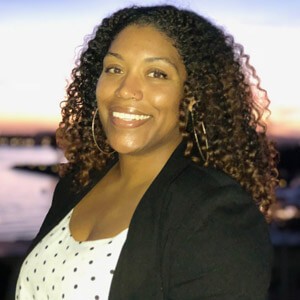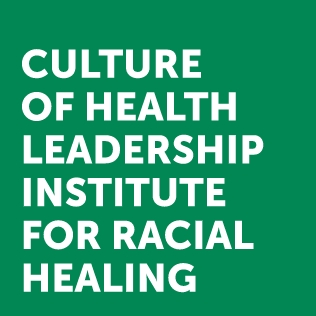“Kim Rodgers’ journey to becoming a racial justice advocate began in 2012, after George Zimmerman was acquitted for the murder of Trayvon Martin. She was 22 years old and just beginning to realize how interconnected and complex the issue of racism was in America. Kimberly gradually began to sharpen her socio-political analysis by reading more, watching the news to see how issues of race were discussed, and engaging in conversations with people in her personal networks. In the years that followed, she witnessed countless other Black people die at the hands of the state, but saw few repercussions for those who committed the violence. She attended protests and joined discussion groups, but her most purposeful work for racial equity has come through professional opportunities.
In her previous job at the National Association of County and City Health Officials (NACCHO), she was an active member and co-lead of a staff affinity group focused on taking action for inclusion, equity, and diversity. She facilitated NACCHO’s Roots of Health Inequity course and provided technical assistance on communicating for health equity to local health departments and other external partners. In her current job, she provides capacity-building that prepares cross-sector professionals to foster racial equity in their work. She delivers trainings; has been invited to present at conferences on narrative, identity, and power; and co-wrote two modules of the Fostering Equity Guide. And she currently manages a Truth & Reconciliation initiative in Cincinnati, Ohio, where she led the standing up of a leadership development program for people interested in championing racial justice.
“
Kim currently leads an initiative, Truth & Equity, which mobilizes local cross-sector coalitions to dismantle the mechanisms of structural racism through a collaborative process of truth-telling, community engagement, and systems change. Inspired by the tenets of the TRHT Framework, the initiative uses storytelling to raise awareness of the processes and systems that generate racial harm; coordinates community conversations and racial healing circles to facilitate reconciliation through bridge-building; and develops a community-driven advocacy platform to strengthen collective will for reconstructing systems and facilitating more equitable policy and practice. The initiative launched in Cincinnati, Ohio, in fall 2020, and expanded to Washington, D.C., in spring 2022.
Post-Institute: Transformative Action Plans
Kim’s initiative “The Space Between” focuses on the idea that what we see happening in our communities today is a result of a range of intentional things that have happened in the past. It is based on the idea that historical and personal truth-telling can close the gap between past and present and the space between so that we can start to create a shared understanding that allows us to act together for a different, more equitable future.
Her inspiration for this idea comes from a program she led at the start of the CoHLI experience called the “ Truth and Equity” Initiative, which operationalizes and weaves together the pillars of the TRHT strategic Framework. Focusing on narrative change, power building and systems change, the Truth and Equity Initiative engages a local cross-sector coalition to do three things: (1) create a shared understanding of the region’s history of racial oppression, (2) convene groups together to build power and political will for change, and (3) use that information to develop a community-driven policy, and an advocacy platform with healing at the root of the entire process.


